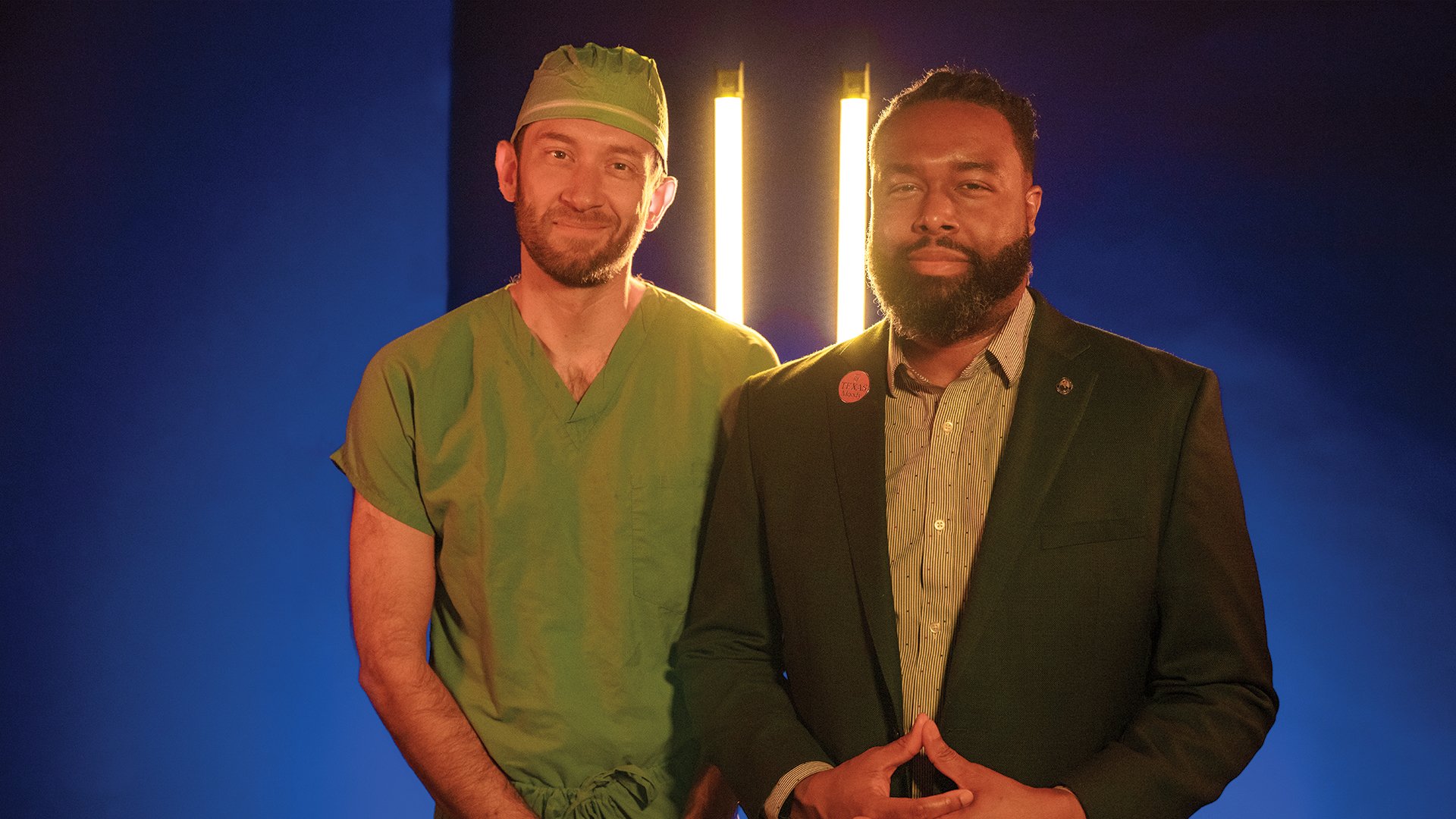
In Central Texas, New Pathways for Kidney Transplant
Joel T. Adler, M.D., MPH, & Sean J. Upshaw, Ph.D.
Coupling patient-centered health communication with data from a new academic transplant program, researchers look to give underserved Central Texans with end-stage kidney disease better access to care that leads to longer, healthier lives.
A kidney transplant is the most cost-effective treatment for end-stage kidney disease, and it enables many patients to live fuller lives — yet in Central Texas, accessing transplant care can be difficult.
Building new pathways to care is the focus of Joel Adler, M.D., a transplant surgeon and assistant professor in Dell Med’s Department of Surgery and Perioperative Care, and Sean Upshaw, Ph.D., an assistant professor at the Moody College of Communication and expert in qualitative methods and health communication.
“Not everyone comes to end-stage kidney disease and treatment the same way,” Adler says. “Some patients think they need to go to Houston or Dallas to be considered for a transplant, and it becomes a geographic and time-sink barrier that, in reality, shouldn’t exist. Some patients hear far more about dialysis and associate it as the ideal form of care. Others don’t even know there’s an issue with their kidneys until it’s too late.”
Catalyzed by an IC2 Institute-funded study using data from a new transplant program in partnership with UT Health Austin (the clinical practice of Dell Med) and Ascension Seton, Adler and Upshaw’s findings show that most patients referred for transplant care don’t live in ZIP codes with the highest burden of end-stage kidney disease. Conversely, areas with a high burden of disease and lower referral rate are typically those who already struggle with access to care.
To examine the complex factors that drive poor transplant access, Adler and Upshaw are taking their work to the community, which they see as the launchpad for systemic solutions and a robust, collaborative research agenda.
“We have a unique opportunity to think clearly and logically about innovative ways to ensure fair and equitable access,” Adler says. “If we engage with patients further, we can learn more about the local barriers they face and determine what we can do from a communications perspective, from an outreach perspective, and address so many issues that actually contribute to someone’s chances of getting referred and listed for a transplant.”
Meeting People Where They Are
Upshaw characterizes a patient’s initial end-stage diagnosis as the “orientation” — the point at which a person must adjust to living with serious disease. It often involves a crash course in kidney health.
“Patients indicate that kidney health is difficult to understand because it’s not normal to hear about it,” Upshaw says. “By taking awareness of end-stage kidney disease down to the local level — making health information more personalized and culturally tailored — people begin to get a better sense of how their kidneys function.”
To make kidney health more personal, Adler and Upshaw are engaging with transplant candidates to identify how they seek and perceive existing messaging on transplant access — and what impedes their engagement with care.
“The community is what really drives the boat here,” Upshaw says. “Learning about what people are aware of, what questions are or aren’t asked … it helps us meet people where they are and develop customized communication strategies that can positively impact the care they receive.”
